-
 Bitcoin
Bitcoin $85,134.1423
0.86% -
 Ethereum
Ethereum $1,882.9872
0.08% -
 Tether USDt
Tether USDt $0.9999
-0.01% -
 XRP
XRP $2.1267
-2.21% -
 BNB
BNB $602.6119
-2.07% -
 Solana
Solana $126.3155
-1.94% -
 USDC
USDC $1.0000
-0.01% -
 Dogecoin
Dogecoin $0.1732
0.20% -
 Cardano
Cardano $0.6830
0.34% -
 TRON
TRON $0.2389
2.17% -
 Toncoin
Toncoin $4.0609
-1.54% -
 Chainlink
Chainlink $13.6750
-2.45% -
 UNUS SED LEO
UNUS SED LEO $9.3981
2.01% -
 Stellar
Stellar $0.2681
-2.14% -
 Sui
Sui $2.4875
2.30% -
 Avalanche
Avalanche $19.4840
-0.66% -
 Shiba Inu
Shiba Inu $0.0...01242
-3.54% -
 Hedera
Hedera $0.1684
-1.60% -
 Polkadot
Polkadot $4.1148
-2.95% -
 Litecoin
Litecoin $83.0925
-2.19% -
 Bitcoin Cash
Bitcoin Cash $306.4919
-2.06% -
 MANTRA
MANTRA $6.2535
-0.54% -
 Bitget Token
Bitget Token $4.6025
-0.96% -
 Dai
Dai $1.0000
-0.01% -
 Ethena USDe
Ethena USDe $0.9999
0.02% -
 Pi
Pi $0.6766
-5.48% -
 Hyperliquid
Hyperliquid $13.5266
-2.56% -
 Monero
Monero $216.1067
-0.56% -
 Uniswap
Uniswap $6.1363
-0.96% -
 Aptos
Aptos $5.3208
-1.08%
How to mine xrp ripple currency
To participate in securing the Ripple network, individuals can run a validator node by meeting the hardware requirements, configuring the necessary software, establishing a VNI, joining the consensus process, and optimizing node performance.
Jan 09, 2025 at 05:38 pm
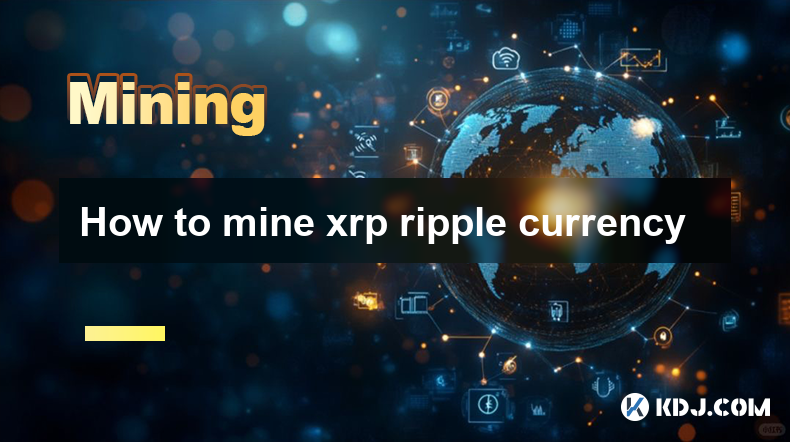
Key Points:
- Understanding Ripple Consensus Ledger (RCL)
- Factors to Consider for XRP Mining
- Hardware Requirements for XRP Mining
- Software Configuration for Mining
- Joining Validation Nodes for Consensus
- Minimizing Energy Consumption
- Monitoring and Optimizing Mining Performance
How to Mine XRP Ripple Currency
1. Understanding Ripple Consensus Ledger (RCL)
Ripple operates on a unique distributed ledger technology called the Ripple Consensus Ledger (RCL), which differs from traditional Proof-of-Work (PoW) or Proof-of-Stake (PoS) mining prevalent in other cryptocurrencies. The RCL relies on a decentralized network of validation nodes to secure and update the ledger.
2. Factors to Consider for XRP Mining
Unlike Bitcoin or Ethereum, XRP is pre-mined and held by Ripple, meaning it is not possible to mine new XRP tokens. However, one can participate in the validation process by running a validator node, which validates transactions and ensures the security of the RCL.
3. Hardware Requirements for XRP Mining
To run a validator node, you will need a high-performance server with the following minimum specifications:
- 8-core CPU (minimum 3 GHz)
- 16 GB RAM
- 250 GB SSD
- Stable internet connection with at least 10 Mbps upload and download speeds
4. Software Configuration for Mining
To set up your node, you will need the following software:
- Ripple Consensus Ledger Daemon (XRPL-D)
- Redis Server
- UNIX System
Follow the steps provided in Ripple's documentation to download, install, and configure the software.
5. Joining Validation Nodes for Consensus
Once your node is up and running, you need to join the network of validation nodes. To do this:
- Setup Port Forwarding: Configure your firewall and router to allow incoming connections on port 51234.
- Register Validation Key: Obtain a validator node unique identifier (VNI) from Ripple and make it publicly available via the Ripple validator directory.
- Join Consensus: Connect your node to the consensus network by sharing the VNI and IP address with other validators.
6. Minimizing Energy Consumption
Ripple's consensus mechanism utilizes a hybrid approach, called Unique Node List (UNL), to reduce energy consumption compared to PoW or PoS mining. The UNL dynamically tracks the most reliable and high-performing validator nodes, enabling the network to operate with a smaller set of active validators.
7. Monitoring and Optimizing Mining Performance
To ensure your node is operating smoothly, monitor its status using the Ripple Console. The console provides information on connection status, validation success, and energy consumption. Regularly update the software, tune network parameters, and upgrade your hardware if necessary to maintain optimal performance.
FAQs
- Can I mine XRP individually?
No, XRP is not mined in the traditional sense. Instead, you can participate as a validator node on the Ripple Consensus Ledger.
- Is XRP mining profitable?
Validator nodes are compensated for their role in securing the network through the network's transaction fees. However, the profitability of running a validator node depends on factors such as operating costs, hardware efficiency, and the overall health of the Ripple network.
- How much does it cost to set up an XRP validator node?
The cost of setting up a validator node includes the hardware, software, internet connection, and ongoing maintenance expenses. The minimum hardware requirements outlined above can cost around $1,000 to $2,000.
- What are the risks of running an XRP validator node?
Operating a validator node requires technical expertise and consistent monitoring. A node that fails to validate transactions correctly or is downtime can lose its status and validation rewards.
- Is it worth running an XRP validator node?
The decision to run an XRP validator node depends on various factors, including your technical capabilities, financial resources, and investment objectives. Consider the potential rewards, risks, and long-term sustainability of the Ripple ecosystem before making a decision.
Disclaimer:info@kdj.com
The information provided is not trading advice. kdj.com does not assume any responsibility for any investments made based on the information provided in this article. Cryptocurrencies are highly volatile and it is highly recommended that you invest with caution after thorough research!
If you believe that the content used on this website infringes your copyright, please contact us immediately (info@kdj.com) and we will delete it promptly.
- Altcoins Nosedive Up to 50% On Binance, Sparking Confusion Among Investors
- 2025-04-02 18:35:12
- EOS Price Soars Nearly 20% as Vaulta Banking Initiative Boosts Investor Confidence
- 2025-04-02 18:35:12
- EOS (VAULT) Price Surges 20% as the Network Unveils Its Vaulta Banking Advisory Council
- 2025-04-02 18:30:12
- United States Senator Ted Cruz has introduced a new bill that offers tax incentives for cryptocurrency miners using flared natural gas to power mining operations.
- 2025-04-02 18:30:12
- Pi Network's Native Cryptocurrency, PI, Drops 74% From Its All-Time High
- 2025-04-02 18:25:12
- Pendle (PENDLE) Token Attracts Whales as 5 Newly Created Wallets Withdraw 2.66M Tokens From Binance
- 2025-04-02 18:25:12
Related knowledge
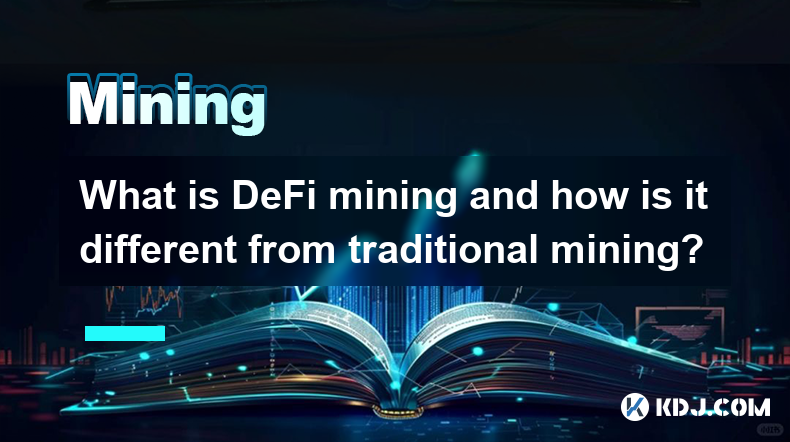
What is DeFi mining and how is it different from traditional mining?
Apr 02,2025 at 09:50am
DeFi mining, also known as yield farming or liquidity mining, is a process within the decentralized finance (DeFi) ecosystem where users provide liquidity to decentralized platforms in exchange for rewards. Unlike traditional mining, which involves solving complex mathematical problems to validate transactions and add them to a blockchain, DeFi mining f...
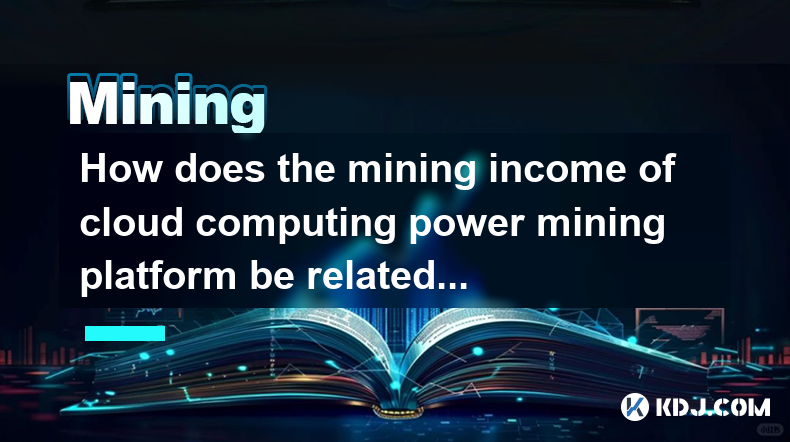
How does the mining income of cloud computing power mining platform be related to mining pool allocation?
Apr 02,2025 at 01:56am
The relationship between the mining income of a cloud computing power mining platform and the allocation of mining pools is a crucial aspect of cryptocurrency mining. Mining income is influenced by various factors such as the efficiency of the mining hardware, electricity costs, and the specific cryptocurrency being mined. However, the allocation of min...
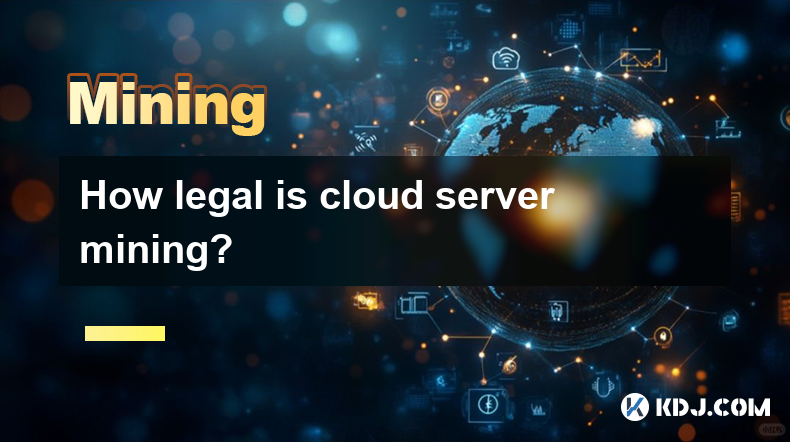
How legal is cloud server mining?
Apr 01,2025 at 08:08am
Cloud server mining has become an increasingly popular method for individuals and companies to participate in cryptocurrency mining without the need for expensive hardware and high electricity costs. However, the legality of cloud server mining can be a complex issue, as it varies by jurisdiction and depends on several factors. This article will explore...
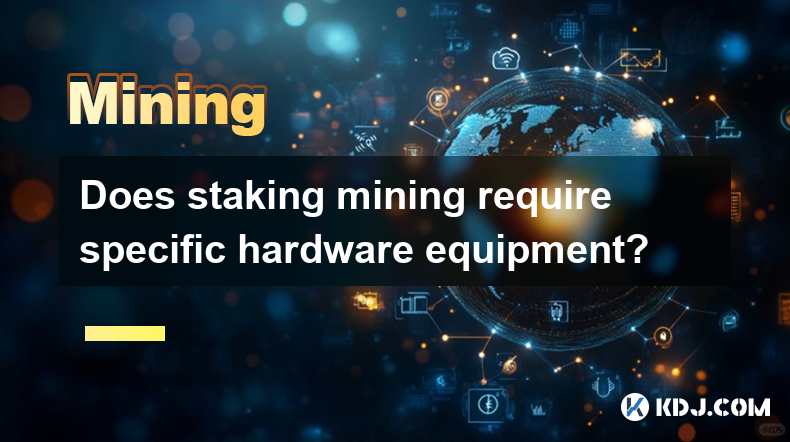
Does staking mining require specific hardware equipment?
Apr 02,2025 at 08:21am
Staking mining, often referred to simply as staking, is a process used by various cryptocurrencies to secure their networks and validate transactions. Unlike traditional mining, which often requires specialized hardware like ASICs (Application-Specific Integrated Circuits) or high-performance GPUs (Graphics Processing Units), staking typically does not ...
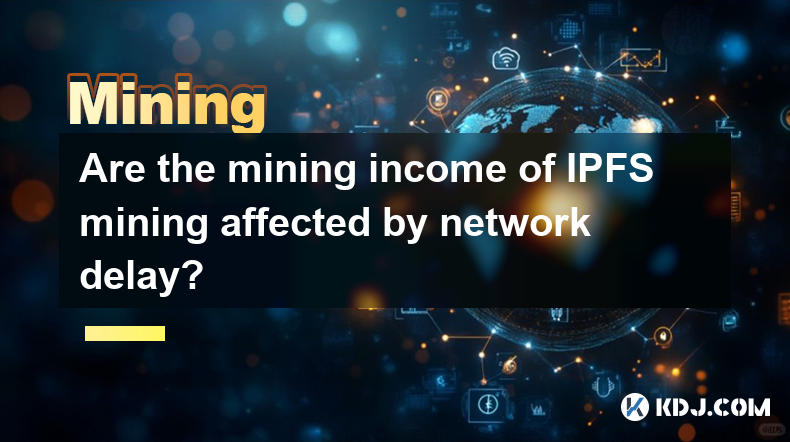
Are the mining income of IPFS mining affected by network delay?
Apr 01,2025 at 09:36pm
Are the Mining Incomes of IPFS Mining Affected by Network Delay? Understanding IPFS Mining and Network Delay's ImpactIPFS (InterPlanetary File System) mining, unlike Bitcoin mining, doesn't involve solving complex cryptographic puzzles. Instead, it focuses on providing storage and bandwidth to the network. Miners earn rewards for storing and sharing dat...
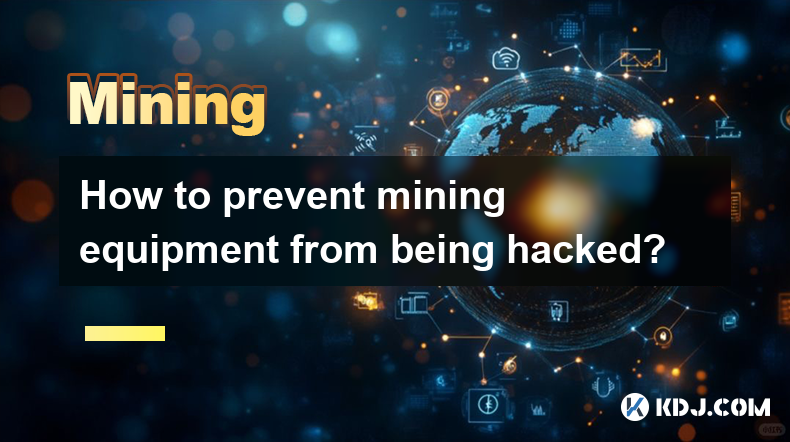
How to prevent mining equipment from being hacked?
Apr 01,2025 at 06:22am
Understanding the ThreatsCryptocurrency mining, while potentially lucrative, exposes your equipment to various cyber threats. These threats range from simple malware infections that steal your mining profits to sophisticated attacks that hijack your entire operation. Understanding these threats is the first step in effective protection. This includes r...

What is DeFi mining and how is it different from traditional mining?
Apr 02,2025 at 09:50am
DeFi mining, also known as yield farming or liquidity mining, is a process within the decentralized finance (DeFi) ecosystem where users provide liquidity to decentralized platforms in exchange for rewards. Unlike traditional mining, which involves solving complex mathematical problems to validate transactions and add them to a blockchain, DeFi mining f...

How does the mining income of cloud computing power mining platform be related to mining pool allocation?
Apr 02,2025 at 01:56am
The relationship between the mining income of a cloud computing power mining platform and the allocation of mining pools is a crucial aspect of cryptocurrency mining. Mining income is influenced by various factors such as the efficiency of the mining hardware, electricity costs, and the specific cryptocurrency being mined. However, the allocation of min...

How legal is cloud server mining?
Apr 01,2025 at 08:08am
Cloud server mining has become an increasingly popular method for individuals and companies to participate in cryptocurrency mining without the need for expensive hardware and high electricity costs. However, the legality of cloud server mining can be a complex issue, as it varies by jurisdiction and depends on several factors. This article will explore...

Does staking mining require specific hardware equipment?
Apr 02,2025 at 08:21am
Staking mining, often referred to simply as staking, is a process used by various cryptocurrencies to secure their networks and validate transactions. Unlike traditional mining, which often requires specialized hardware like ASICs (Application-Specific Integrated Circuits) or high-performance GPUs (Graphics Processing Units), staking typically does not ...

Are the mining income of IPFS mining affected by network delay?
Apr 01,2025 at 09:36pm
Are the Mining Incomes of IPFS Mining Affected by Network Delay? Understanding IPFS Mining and Network Delay's ImpactIPFS (InterPlanetary File System) mining, unlike Bitcoin mining, doesn't involve solving complex cryptographic puzzles. Instead, it focuses on providing storage and bandwidth to the network. Miners earn rewards for storing and sharing dat...

How to prevent mining equipment from being hacked?
Apr 01,2025 at 06:22am
Understanding the ThreatsCryptocurrency mining, while potentially lucrative, exposes your equipment to various cyber threats. These threats range from simple malware infections that steal your mining profits to sophisticated attacks that hijack your entire operation. Understanding these threats is the first step in effective protection. This includes r...
See all articles

























































































